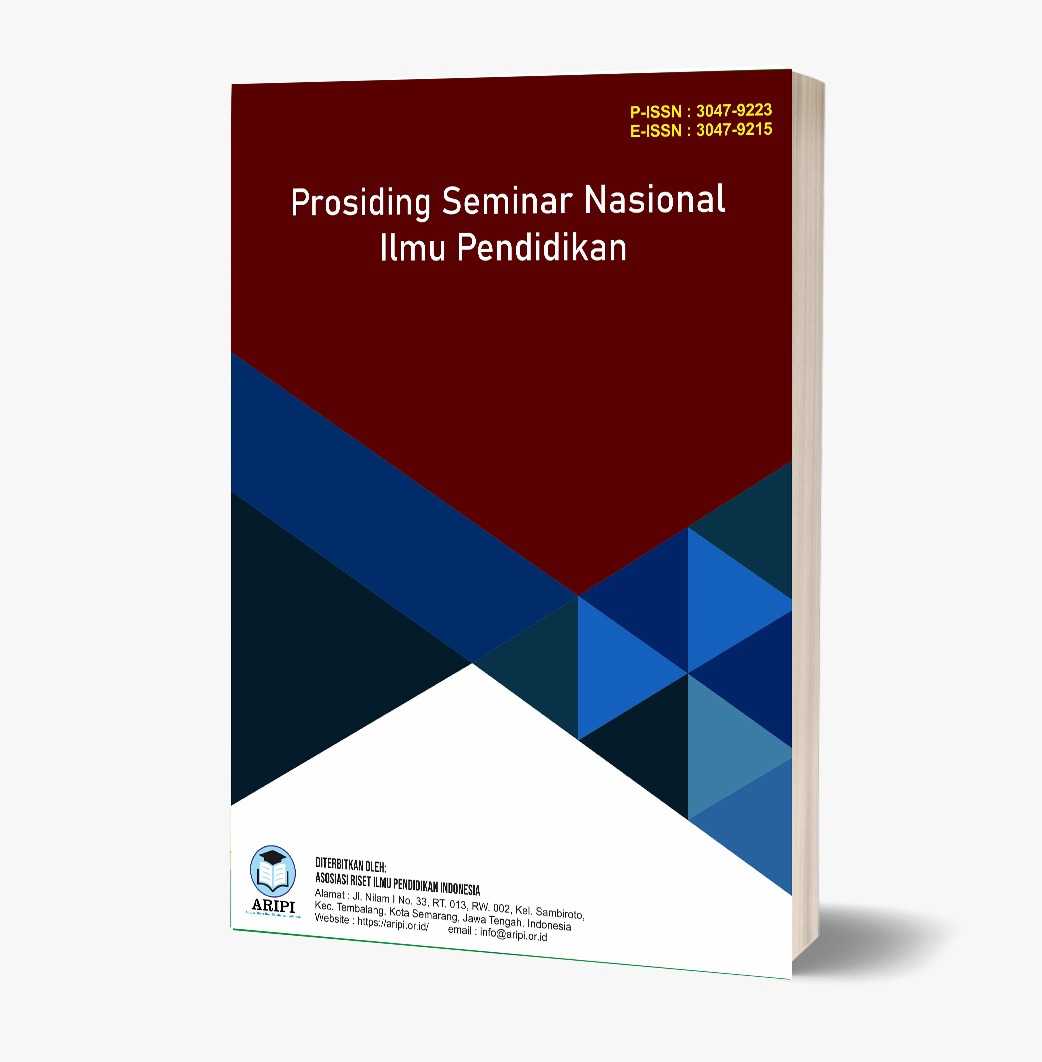The Barikan Tradition: A Symbol of Solidarity and Communal Harmony
DOI:
https://doi.org/10.62951/prosemnasipi.v1i2.57Keywords:
Barikan Tradition, social solidarity, collective identity, religious syncretism, modernizationAbstract
This research focuses on the role of the Barikan Tradition in strengthening social solidarity among the community, highlighting how this cultural and religious practice serves as a bond between community members. Additionally, the study aims to explore the religious meanings embedded in the Barikan Tradition from the local community's perspective, as well as its influence on the formation of collective identity. A qualitative approach using ethnographic methods was employed to deeply examine the religious meanings and functions of the Barikan Tradition and its social impact on the community. The findings indicate that the Barikan Tradition is understood as an effort to maintain balance between the spiritual and material worlds, between traditional values and the demands of modernization. This tradition plays a significant role in reinforcing social solidarity, preserving collective identity, and helping the community adapt to social changes. Furthermore, the Barikan Tradition reflects religious syncretism, where a fusion of local beliefs with religion occurs. As a religious rite passed down through generations, Barikan not only functions as a symbolic ritual but also as a reflection of spirituality and community values. In the context of the sociology of religion, this tradition plays an important role in strengthening collective consciousness and preserving religious values amid the challenges of globalization and modernization.
References
Agustina, A., Ismaya, E. A., & Setiawan, D. (2021). Makna Tradisi Barikan Bagi Pendidikan Karakter Anak Desa Sedo Demak. Jurnal Educatio Fkip Unma, 7(3), 1213-1222.
Afdhila, R., Ismaya, E. A., & Purbasari, I. (2022). Pemaknaan Tradisi Barikan Dalam Konteks Pendidikan Anak Di Dukuh Karang Gempol. Jiip-Jurnal Ilmiah Ilmu Pendidikan, 5(9), 3439-3446.
Beatty, A. (2009). Varieties Of Javanese Religion: An Anthropological Account. Cambridge: Cambridge University Press.
Clarke, P. B. (Ed.). (2011). The Oxford Handbook Of The Sociology Of Religion (Online Edn.). Oxford Academic. Https://Doi.Org/10.1093/Oxfordhb/9780199588961.001.0001
Durkheim, E. (1912). The Elementary Forms Of Religious Life. New York: The Free Press.
Geertz, C. (1960). The Religion Of Java. Chicago: University Of Chicago Press.
Horii, M. (2021). ‘Religion’ In Classical Social Theories: Marx, Weber, And Durkheim. In ‘Religion’ And ‘Secular’ Categories In Sociology (Pp. 91-112). Palgrave Macmillan. Https://Doi.Org/10.1007/978-3-030-87516-9_4
Karim, M. A. (2014). Makna Tradisi Barikan Dan Pengaruhnya Terhadap Masyarakat Dusun Barik Desa Betet Kecamatan Ngronggot Kabupaten Nganjuk (Doctoral Dissertation, Iain Kediri).
Koentjaraningrat. (1985). Kebudayaan Jawa. Jakarta: Balai Pustaka.
Mirtanty, D., Fauzi, A. M., & Pribadi, F. (2021). Solidaritas Antarumat Beragama Dalam Tradisi Barikan Di Desa Mojongapit Jombang. Jurnal Ilmiah Sosiologi Agama (Jisa), 4(2), 80-95.
Sarwi, S. (2020). Makna Simbolik Tradisi Barikan Dan Relevansinya Dengan Pattidana Dalam Buddhisme. Sabbhata Yatra: Jurnal Pariwisata Dan Budaya, 1(2), 102-113.
Woodward, M. R. (1989). Islam In Java: Normative Piety And Mysticism In The Sultanate Of Yogyakarta. Tucson: University Of Arizona Press.
Downloads
Published
How to Cite
Issue
Section
License
Copyright (c) 2024 Prosiding Seminar Nasional Ilmu Pendidikan

This work is licensed under a Creative Commons Attribution-ShareAlike 4.0 International License.







